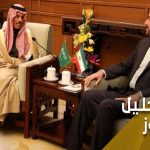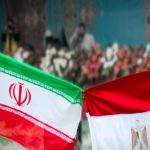Everything that matters in the complex process of Eurasia integration was once again at play in Astana, as the – renamed – Kazakh capital hosted the 6th Conference on Interaction and Confidence-Building Measures in Asia (CICA).
Faraan: The roll call was a Eurasian thing of beauty – featuring the leaders of Russia and Belarus (EAEU), West Asia (Azerbaijan, Turkey, Iraq, Iran, Qatar, Palestine) and Central Asia (Tajikistan, Uzbekistan, Kyrgyzstan). China and Vietnam (East and Southeast Asia) attended at the level of vice presidents.
CICA is a multinational forum focused on cooperation toward peace, security, and stability across Asia.,Kazakh President Tokayev revealed that CICA has just adopted a declaration to turn the forum into an international organization. CICA has already established a partnership with the Eurasia Economic Union (EAEU). So in practice, it will soon be working together side-by-side with the SCO, the EAEU and certainly BRICS+.
The Russia-Iran strategic partnership was prominently featured at CICA, especially after Iran being welcomed to the SCO as a full member. President Raeisi, addressing the forum, stressed the crucial notion of an emerging “new Asia”, where “convergence and security” are “not compatible with the interests of hegemonic countries and any attempt to destabilize independent nations has goals and consequences beyond national geographies, and in fact, aims to target the stability and prosperity of regional countries.”
For Tehran, being a partner in the integration of CICA, within a maze of pan-Asia institutions, is essential after all these decades of”maximum pressure” unleashed by the Hegemon. Moreover, it opens an opportunity, as Raeisi noted, for Iran to profit from “Asia’s economic infrastructure.”
Russian President Vladimir Putin, predictably, was the star of the show in Astana. It’s essential to note that Putin is supported by “all”nations represented at CICA. High-level bilaterals with Putin included the Emir of Qatar: everyone that matters in West Asia wants to talk to “isolated” Russia.
Putin called for “compensation for the damage caused to the Afghans during the years of occupation” (we all know the Empire of Chaos, Lies and Plunder will refuse it), and emphasized the key role of the SCO to develop Afghanistan. He stated that Asia, “where new centers of power are growing stronger, plays a big role in the transition to a multipolar world order”.
He warned, “there is a real threat of famine and large-scale shocks against the backdrop of volatility in energy and food prices in the world.” Hefurther called for the end of a financial system that benefits the “Golden billion” – who “live at the expense of others” (there’s nothing “golden” about this “billion”: at best such definition of wealth applies to 10 million.)
And he stressed that Russia is doing everything to “form a system of equal and indivisible security”. Exactly what drives the hegemonic imperial elites completely berserk. “ The imminent juxtaposition between CICA and the SCO and EAEU is yet another instance of how the pieces of the complex Eurasia jigsaw puzzle are coming together.
Turkey and Saudi Arabia – in theory, staunch imperial military allies – are itching to join the SCO, which has recently welcomed Iran as a full member. That spells out Ankara and Riyadh’s geopolitical choice of forcefully eschewing the imperial Russophobia cum Sinophobia offensive.
Erdogan, as an observer at the recent SCO summit in Samarkand, sent out exactly this message. The SCO is fast reaching the point where we may have, sitting at the same table, and taking important consensual decisions, not only the “RICs” (Russia, India, China) in BRICS (soon to be expanded to BRICS+) but arguably the top players in Muslim countries: Iran, Pakistan, Turkey, Saudi Arabia, Egypt and Qatar.
by Pepe Escobar
Pepe Escobar is a veteran journalist, author and independent geopolitical analyst focused on Eurasia.










